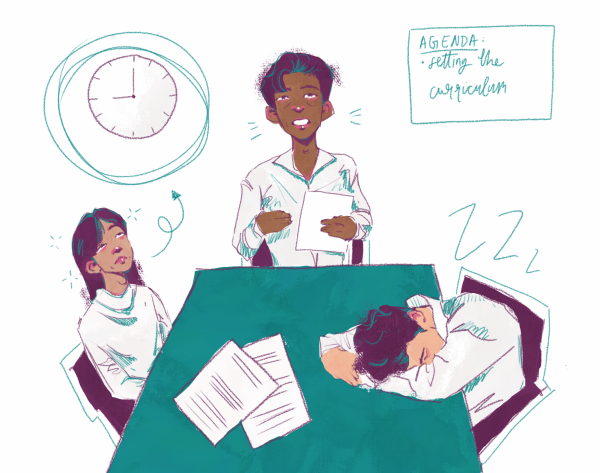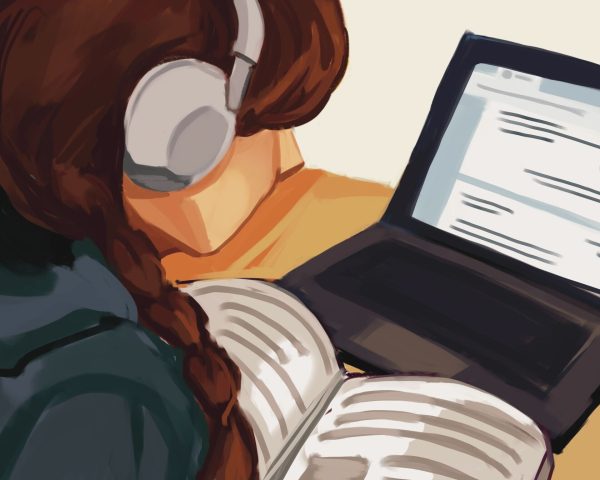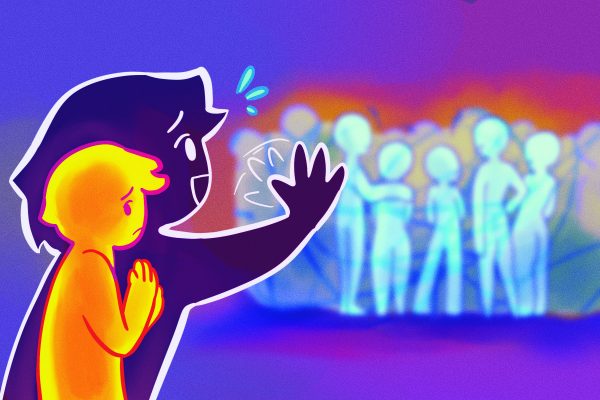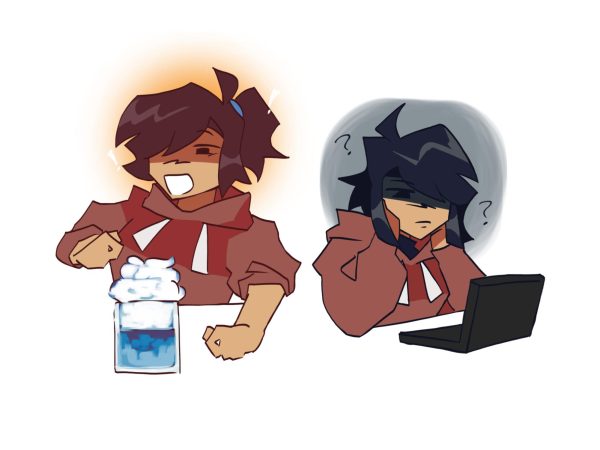Community should raise awareness regarding tech usage and cybersafety
Students need to be taught how to take precautions with technology, how to protect themselves and their information
Think back to middle school where our parents would constantly monitor our texts, we had to tell them about every account we made and we were allowed to create a Facebook page on the condition that we would “friend” them. We used to get regular talks about cyber safety and cyber predators, be it at school or at the dinner table.
Fast forward a few years and everyone has a Twitter account, multiple Tumblr pages, an Instagram, access to millions of applications and has even managed to discreetly “unfriend” his or her parents on Facebook.
By high school, we gained extreme independence when it came to internet activity, in great part due to the popularity of mobile devices and their numerous apps.
At this age, we are risk takers — we search the internet with no fear and we are more prone to enter our personal information online with little to no hesitation at all. And, as we ventured into our adolescent years, we also yearned for more privacy. Now that the Internet has also become a place for personal disclosure, many teenagers want to keep that space private from their parents. This uncontrolled activity can put teenagers in risky situations.
Considering that we now put so much of our information online and that it is possible for all sorts of people to get access to this content, cyber safety deserves much more attention from adults and kids alike, than it currently gets.
As our society becomes more and more dependent on technology, our standing systems should learn to accommodate and we should put more effort into educating people about cyber safety.
For example, cyber safety should become a part of school curriculums. At Paly, it could be an extension of Paly librarian Rachel Kellerman’s talks on online resources or a part of the Living Skills course. It is just like incorporating self defense into physical education.
Cyber safety consists of, by definition, measures taken to use information and communication technology safely and responsibly. As explained by the Federal Bureau of Investigation’s website, cyber safety addresses topics such as the protection of personal and account information, online gaming and cell phone online networking.
What many tend to overlook is that cyber safety extends far beyond, for example, not giving out your address or your number to strangers online. It includes being cautious about computer programs or account security.
Last year, a cyber safety case that received a lot of media attention was the case of Miss Teen USA controversy Cassidy Wolf. Like many teenagers, Wolf depended on and used her computer for a variety of reasons. What she did not realize, however, was that when she left her computer open to play music, someone was watching her through the computer’s built in camera. He took revealing pictures of her and sent her messages threatening to expose the photos if she did not abide by his obscene requests.
What kind of person would do something like this? Wolf was a victim of hacks conducted by Jared James Abrahams, a boy who was in her high school class. According to CNN, professional investigators found that Abrams had visited multiple sites and forums in search of figuring out how to hijack computers; many strangers online were quick to give him some tips.
There are many precautions one can take to minimize the risk of suffering a cyber attack. Various government and private sites offer advice.
One preventative option that many overlook is common sense. People, particularly teens, tend to do things online that make them unnecessarily vulnerable, such as sending inappropriate pictures that can end up circulating on the Internet or becoming friends and getting emotionally attached to complete strangers. Using common sense and avoiding doing things that one would not do in the ‘real world’ - as opposed to the online world is the first step to cyber safety.
Just because technology has advanced does not mean it is safe nor does it mean we necessarily know how to properly use it. We have to be more conscious of the danger we face the moment our smart phones or computers are turned on.
The focus, so far, has been on big business and how their private data has been breached. However, personal cyber safety is just as important in the digital and social media age, especially for teens.
Your donation will support the student journalists of Palo Alto High School's newspaper












